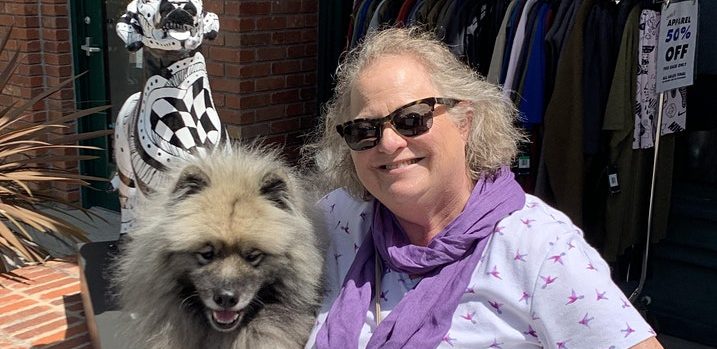The Unspoken Truth of Responsible Dog Ownership
September is National Responsible Dog Ownership Month.

Being a responsible dog parent means providing walks, food, and love.
My practice as a Pet Parenting Specialist and Animal Communicator has shown me a deeper, more challenging aspect of this responsibility.
In just the last few weeks, I’ve had multiple sessions where a loving dog parent was forced to ask a gut-wrenching question: Is my dog better off in a new home?
The “Forever” Myth
The “forever” myth is an unrealistic expectation that says once you bring a pet into your family, you must keep them for their entire life.
The prevailing belief, often unspoken, is that rehoming a pet is cruel and means the pet parent has failed the animal.
This unrealistic belief, however, doesn’t account for the unpredictable nature of life.
Being a responsible dog owner means prioritizing the dog’s well-being.
Sometimes, the most loving and courageous act is to rehome, ensuring they have a chance to thrive in a home that’s a better fit for their needs.
The following three case studies demonstrate that being a responsible pet parent sometimes means letting go, while at other times, it means providing training, structure, and effective communication.
Kai’s Story: When Love Isn’t Enough

Kai, a 1 ½-year-old Australian Shepherd, came to Emily as a fearful puppy. Living in a city apartment only heightened his fear-based reactivity. Kai communicated that he felt overwhelmed and unsafe, and his stress became too much. The day before we spoke, he nearly bit a toddler.
Devastated, Emily asked me what Kai wanted. He confirmed her intuition: he was unhappy in the city and would likely go after a child again.
In a loving and responsible act, Emily returned Kai to his breeder, knowing it gave him a chance to find a home where he could feel safe and whole.
Angus’s Story: Trusting What He Communicated
Sue fell in love with an Australian Shepherd named Angus. After only a couple of weeks, she saw how fearful and reactive he was. He chased her cats and, unprovoked, bit her friend’s son twice. Sue called it a “nip,” but a nip is still a bite.
Angus wasn’t a bad dog; he had fear-based aggression,
When we spoke, Angus confirmed he didn’t feel safe in Sue’s home.
Sue intuitively knew he wasn’t the right dog for her family. After her Animal Communication session, Sue made the difficult but responsible choice to return him to his previous owner.
Bennett’s Story: The Right Home With Guidance

Not all complex cases end in rehoming.
Colette adopted Bennett, a nine-month-old terrier mix, but quickly worried he wasn’t a good fit for her cats. She admitted she was unsure if Bennett even wanted to stay.
Bennett’s communication made it clear he wanted to be part of the family.
He asked Colette for more guidance, structure, and training to learn how to respect the cats and settle into the household.
Colette’s strong dog-handling skills and willingness to work with him allowed her to make the responsible choice to give Bennett the tools he needed to succeed.
The Bigger Picture
The decision to rehome a dog is often filled with pressure, guilt, and shame.
If you have made this choice, it’s natural to feel grief, guilt, or even relief. These feelings are normal and come from a place of love.
Being a responsible dog parent is about making choices, even hard ones, that are in your dog’s best interest.
When a dog shows aggression or isn’t thriving, making the responsible choice can feel overwhelming.
This is why it’s so important to get your dog from a responsible breeder or rescue organization that will take them back for any reason.
Listening to your gut and what your pet is communicating will guide you toward the most compassionate and responsible path forward.
Feeling Unsure?
Feeling unsure about your relationship with your pet?
This kind of uncertainty is more common than people admit.
You don’t have to carry the weight of this decision alone.
Too many people come to me as a last resort. Tuning in earlier can save you time, money, and a whole lot of stress and anxiety.
Whether you’re struggling with behavior issues or just sensing that something isn’t right, I’m here to help you hear what your animal is trying to say so you can make the right decision for both of you.
It’s important to listen to your pet and then act responsibly, even when it breaks your heart.










